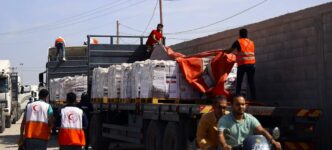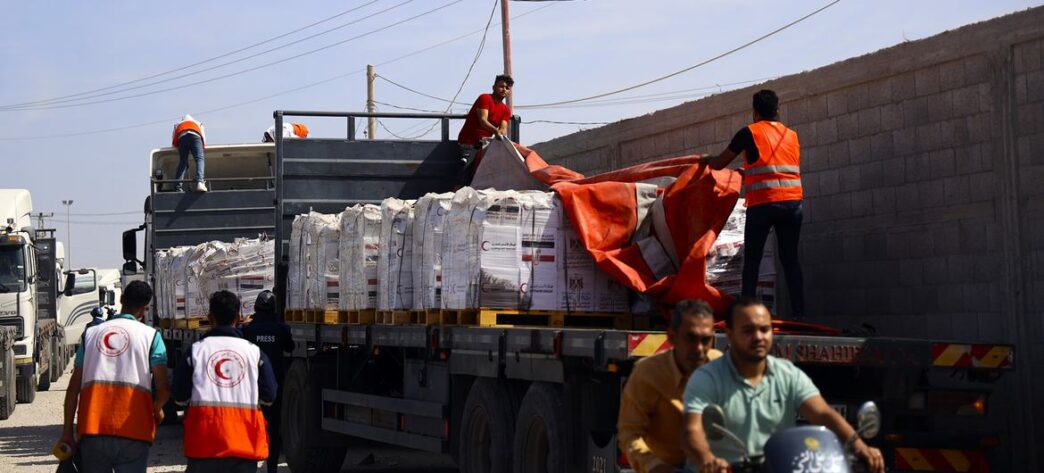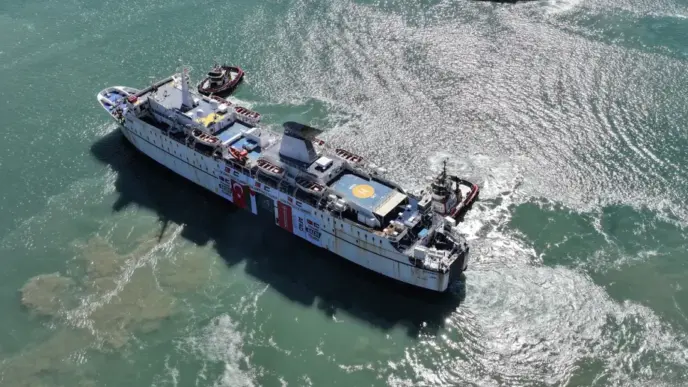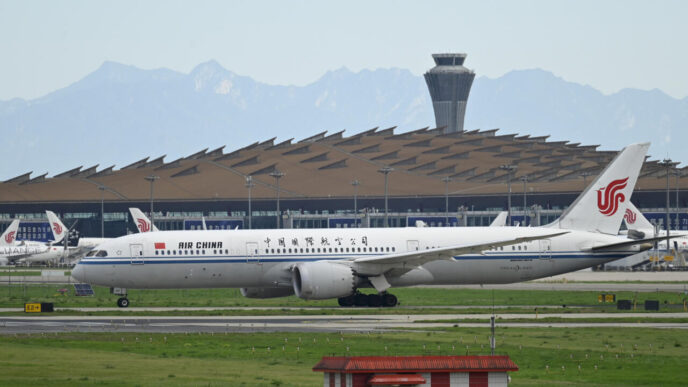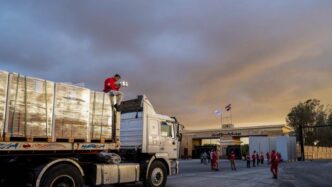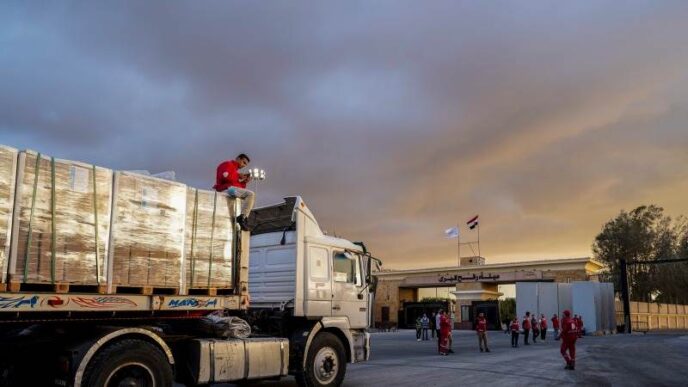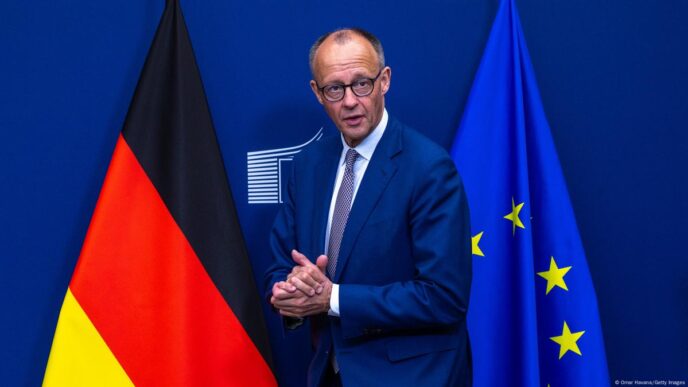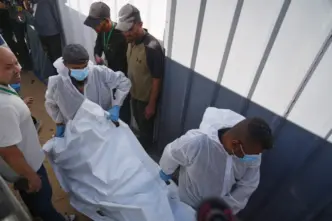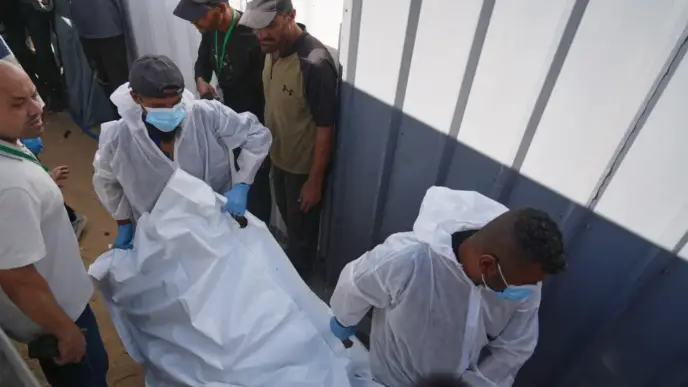A senior official of the United Nations (UN), Hamish Young, has described the situation in Gaza as “catastrophic” and called for the unrestricted entry of essential humanitarian supplies, stressing that the quality of aid is as crucial as its quantity.
Young, UNICEF’s top emergency coordinator, said Palestinians in Gaza urgently need tents, plastic sheets, and clean drinking water, as well as fuel and equipment to produce and distribute water and pipes to repair wells and desalination plants.
Speaking to Anadolu on Friday while waiting near the Kissufim crossing east of Deir al-Balah, Young said, “We have 50 trucks waiting for permission to move, carrying medical and hygiene supplies essential to saving children’s lives.”
Since the ceasefire began on October 10, Israel has allowed 653 aid trucks into Gaza—far below the 600 trucks per day stipulated in the truce agreement—according to Ismail Thawabta, head of Gaza’s government media office.
On Sunday, 173 trucks were permitted entry, including three carrying cooking gas and six with fuel. No aid entered on Monday or Tuesday, though 480 trucks were allowed in on Wednesday.
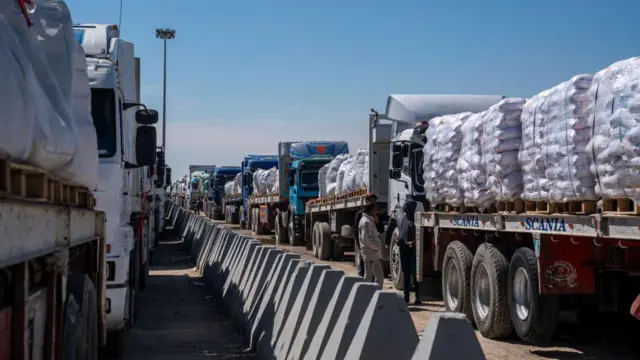
As of Friday evening, the media office had yet to release figures for Thursday and Friday, saying the data would be published on Saturday.
Young said nearly all hospitals in Gaza have been destroyed or severely damaged, leaving residents with dire shortages of food and shelter.
He described the situation as “catastrophic” and emphasised the need for immediate large-scale deliveries of food to combat famine in northern Gaza. “There is an urgent need to do everything possible to bring in all the supplies I’m talking about,” he said.
Gaza has been suffering from a worsening humanitarian crisis and famine since Israel’s military offensive began on October 8, 2023.
The bombardment and blockade have decimated infrastructure and collapsed the health system. “The children of Gaza desperately need this support,” Young said. “We cannot sit and wait for supplies to come through.”
Under the ceasefire’s terms, 600 aid trucks—including those carrying goods from private suppliers—should enter Gaza daily.
Young said the enclave also requires about 50 fuel trucks each day, in addition to cooking gas, which he described as “essential for daily life.”
He underscored that aid distribution requires safe access across Gaza. “We need freedom of movement throughout Gaza to reach the most vulnerable children, their mothers, and families caring for them,” he said.
Israel has kept Gaza’s border crossings closed since March 2, blocking food, medicine, and other essential supplies.
Thousands of aid trucks remain stranded on the Egyptian side of the Rafah crossing as Israel continues to refuse its reopening, linking the move to the return of the bodies of Israeli hostages.
The ceasefire agreement between Israel and Hamas, brokered last week under a plan by US President Donald Trump, includes the release of Israeli hostages in exchange for Palestinian prisoners. Later phases aim to rebuild Gaza and create a new governing framework excluding Hamas.
Since October 2023, Israeli attacks have killed nearly 68,000 Palestinians in Gaza—most of them women and children—and left the enclave largely uninhabitable.


 Trending
Trending 
